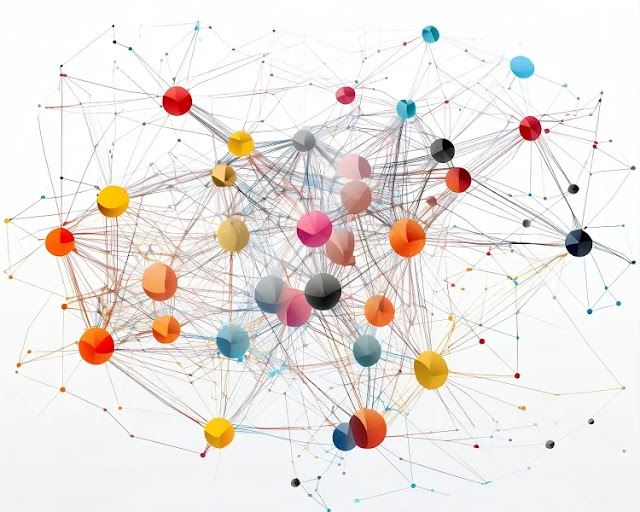Understanding Socialization | How We Become Who We Are?
Socialization is a fundamental process that shapes individuals' personalities, beliefs, behaviors, and norms from infancy through adulthood. It is through socialization that we learn to navigate the complexities of our societies and cultures, acquiring the skills necessary to function as members of our communities. This article explores the multifaceted nature of socialization, drawing on scholarly insights and multimedia resources to offer a comprehensive understanding of how we become who we are.
The Essence of Socialization
Socialization is the process through which individuals internalize the values, beliefs, and norms of their society and learn to function as its members. It is a lifelong process that begins at birth and continues throughout our lives, influencing every aspect of our existence.
Primary Socialization occurs in early childhood through interactions with family members. This stage is crucial as it lays the foundation for our personality development and shapes our initial worldview. According to George Herbert Mead, a prominent sociologist, children develop a sense of self through "taking the role of the other," a process where they learn to see themselves from the perspectives of others.
Secondary Socialization takes place later in life through institutions such as schools, peer groups, and workplaces. This stage helps individuals learn how to behave in different social contexts and adapt to various roles. For example, Erving Goffman's theory of dramaturgy likens social interactions to a theatrical performance, where individuals present themselves in ways that will be accepted by others.
Agents of Socialization
Several key agents play pivotal roles in the socialization process:
1. Family
The family is the primary agent of socialization, providing the first context in which children learn about the world. It instills values, norms, and language that form the basis of identity. Studies, such as those by psychologist Diana Baumrind, have highlighted the impact of different parenting styles on children's social development.
2. Education
Schools are crucial for secondary socialization, teaching not only academic knowledge but also social skills and cultural norms. The hidden curriculum in schools—unwritten, unofficial lessons—plays a significant role in shaping students' attitudes and behaviors.
3. Peer Groups
Peer groups provide a space for individuals to develop social skills and form their identities outside of the family context. Research by Judith Rich Harris suggests that peer influence can sometimes outweigh parental influence during adolescence.
4. Media
The media is a powerful agent of socialization, influencing perceptions, attitudes, and behaviors. The cultivation theory by George Gerbner argues that long-term exposure to media content can shape individuals' views of reality.
Theories of Socialization
Several theories provide frameworks for understanding socialization:
- Social Learning Theory: Proposed by Albert Bandura, this theory emphasizes the role of observation and imitation in learning behaviors. Bandura's famous Bobo doll experiment demonstrated how children learn aggressive behaviors by observing adults.
- Cognitive Development Theory: Jean Piaget's theory focuses on how children develop cognitive abilities through interactions with their environment. Piaget identified stages of cognitive development, each characterized by different ways of thinking and understanding the world.
- Sociocultural Theory: Lev Vygotsky's theory highlights the importance of social interactions and cultural tools in cognitive development. Vygotsky introduced the concept of the Zone of Proximal Development, which refers to the difference between what a learner can do independently and what they can achieve with guidance.
The Role of Socialization in Identity Formation
Socialization plays a critical role in the formation of identity, the unique set of characteristics and roles that define who we are. Identity is multifaceted, encompassing personal identity (individual traits and characteristics) and social identity (group memberships and social roles).
Gender Socialization is an essential aspect of identity formation. From a young age, individuals learn gender roles and expectations through family, media, and peer interactions. Scholars like Judith Butler argue that gender is performative, meaning it is constructed through repeated actions and behaviors. This concept is well articulated in Brené Brown’s TED Talk, "The Power of Vulnerability," where she emphasizes the impact of societal expectations on personal identity and the importance of social connections in shaping who we are.
Cultural Socialization involves learning the customs, traditions, and values of one's cultural or ethnic group. This process is vital for maintaining cultural heritage and fostering a sense of belonging. According to anthropologist Clifford Geertz, culture is a web of meanings that individuals create and interpret through social interactions. The significance of cultural socialization can be seen in educational resources like the CrashCourse Sociology series on YouTube, which provides insights into how different societies transmit their cultural values to future generations.
Conclusion
Socialization is a dynamic and ongoing process that profoundly impacts our development and identity. Through interactions with family, peers, educational institutions, and media, we learn the values, norms, and behaviors that define us as individuals and members of society. By understanding the mechanisms and agents of socialization, we can gain deeper insights into how we become who we are and how we can shape our social environments to foster positive development.
Incorporating scholarly insights and multimedia resources enriches our understanding of socialization, offering diverse perspectives and practical examples of this complex process. As we continue to navigate our social worlds, recognizing the influence of socialization can empower us to make informed choices and contribute to the betterment of our communities.
References
- Mead, G. H. (1934). Mind, Self, and Society. University of Chicago Press.
- Goffman, E. (1959). The Presentation of Self in Everyday Life. Doubleday.
- Baumrind, D. (1967). "Child Care Practices Anteceding Three Patterns of Preschool Behavior." Genetic Psychology Monographs.
- Harris, J. R. (1998). The Nurture Assumption: Why Children Turn Out the Way They Do. Free Press.
- Bandura, A. (1977). Social Learning Theory. Prentice Hall.
- Piaget, J. (1954). *The Construction of Reality in the Child*. Basic Books.
- Brown, B. (2010). "The Power of Vulnerability." TED Talks.
- CrashCourse. (2017). "Sociology: Culture and Ethnography." YouTube.


Comments
Post a Comment